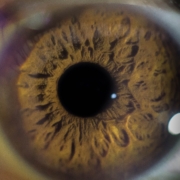Macular degeneration is considered to be one of the most common visual health concerns. More than 200,000 people are diagnosed with the condition every year in the United States. If you have just received a diagnosis, you are bound to have some questions and concerns. Here is a look at a few things you should know about your macular degeneration diagnosis.
Changes in Your Vision May Occur
Changes in vision are to be expected if you have been diagnosed with macular degeneration. You may already be experiencing some issues. Perhaps that is what brought you to the eye doctor initially. However, some of the common vision changes that can occur with macular degeneration include:
- Blurriness
- Dark spots in your vision
- Changes in peripheral vision
- Altered color perception
- Visual distortion
Close Monitoring of the Condition Is Important
If you have been diagnosed with macular degeneration, you may need to see the eye doctor more than most. Because the condition is a progressive one, the eye doctor will need to keep a close watch on your eye health to adjust treatment plans as needed and preserve your vision. Even if you have never been all that vigilant about getting your eyes checked, your diagnosis means being more attentive could literally preserve your visual capabilities.
Follow Your Eye Doctor’s Advice
Your initial diagnosis of macular degeneration will likely come along with several recommendations from the eye doctor. You will be given a plan of treatment, you may be given medications or eye drops, and you may even be given advice about things you can change in your lifestyle to slow the progression of the condition. Be especially mindful of what the eye doctor recommends; these guidelines can do a lot to protect your eyes and slow the progression of the condition.
Talk to Your Hummelstown, PA Eye Doctor About Macular Degeneration
Macular degeneration can be an age-related issue, but it can also be related to several other lifestyle factors. If you believe you are at risk of macular degeneration, be sure to talk to your Hummelstown, PA eye doctor for advice and proper assessment. reach out to us at Kirman Eye to schedule an appointment today.







